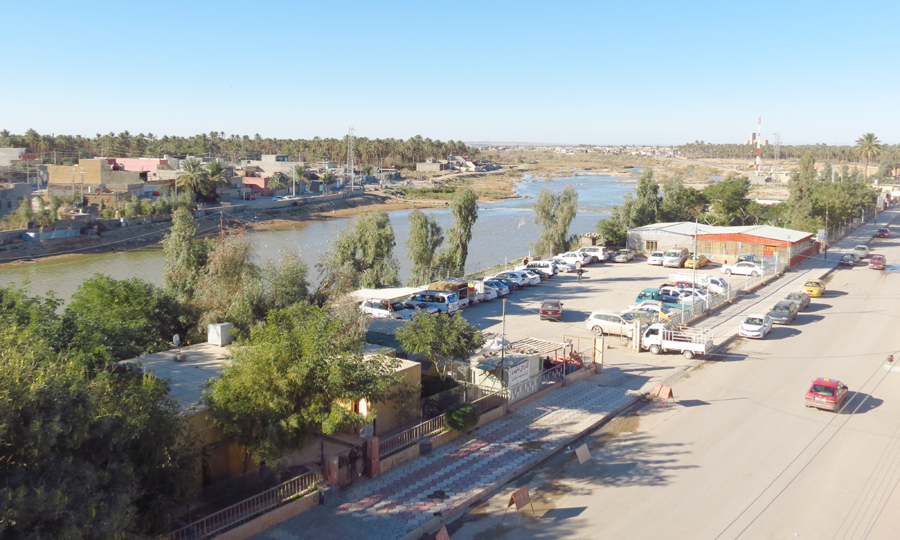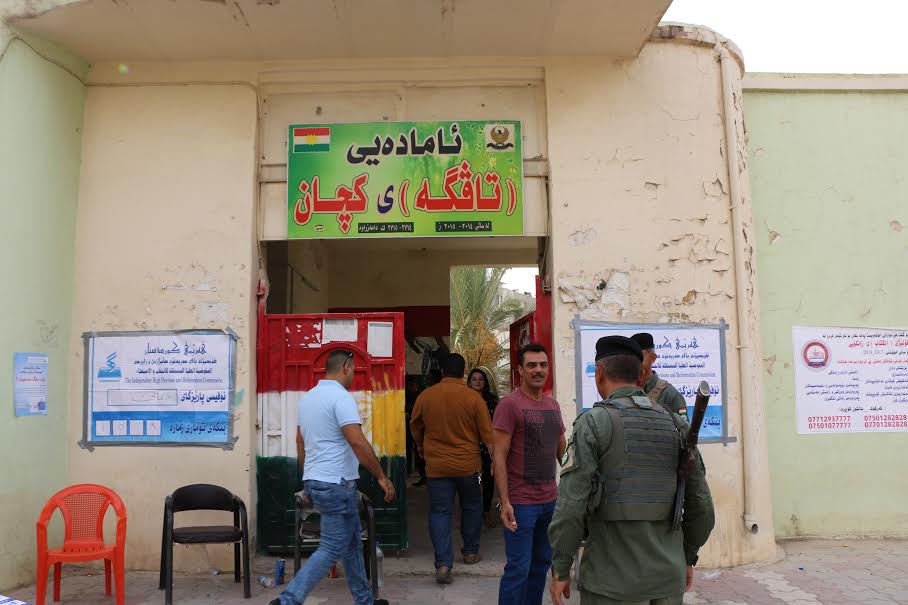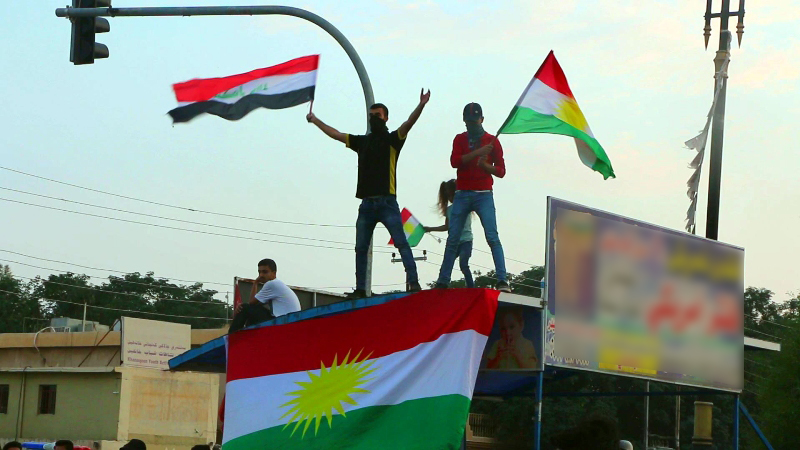Power has been taken back from numerous offices of the Kurdistan Regional Government (KRG) at the order of the Federal Government and the instructions of Diyala province, happening after the withdrawal of the Kurdish forces in the area due to the KRG independence referendum held in September 2017
Before the departure of the Kurdish troops, KRG’s offices enjoyed significant power. Sometimes their power exceeded federal power.
The offices of the KRG were established in Khanaqin and the other disputed area in 2003, working separately from the federal offices in the region.
The prominent offices of the KRG in Khanaqi are municipality, water, health, reconstruction, education, social affairs, electricity, martyrs, Asaysh, police, traffic police, agriculture, university, and disputed areas.
Soran Ali Hussein, head of the municipality office of the KRG in Khanaqin, said, “KRG offices run as before, but we no longer have the authority we had prior to events of October 16.”
On October 16, 2017, the federal government took over the disputed areas and again established its jurisdiction, since then the authorities of the KRG offices had been limited and gradually became powerless.

Khanaqin, Alwand river. Photo: Hawre Azad
Hussein said, “previously, we took part in the administration of the district and had the power to make decisions. We had control over the districts, the sub-districts, and the villages. We even ran those offices that belonged to the federal government and the Diyala province.
Several offices of KRG in Khanaqin are the same as the offices federal government has opened in the district, such as the office of agriculture, electricity, and health.
“We as the municipality office of KRG only do works related to cleaning the district and making it green, but the federal municipality has total authority… due to having two municipalities, the daily administrative works of people have been suspended,” head of KRG municipality office in Khanaqin said.
After the reestablishment of federal authority in Khanaqin, KRG offices have been informed many times not to interfere in the local administration affairs.
“A while ago, KRG traffic office was preparing a report at the place of a traffic accident in Khanaqin, and they were informed to leave the place by the Diyala traffic police because it was not their job,” KRG municipality commissioner gave the incident as an example.
Diyala, Iraqi and KRG flag are flying on the building of Kahanqin General Hospital before the KRG independence referendum, September 2017. Photo: Hawre Azad
Sherwan Merza Qadr, a Patriotic Union of Kurdistan (PUK) member at the Iraqi Council of Representatives, stated, “what is seen in the disputed areas is two administrations, which were created after October 16 events…. Now whoever is decision-maker in the areas has authority. Before the referendum, the KRG had absolute power. Now the central government makes decisions.”
Khanaqin is a disputed district in Diyala province. Its population consists of Arabs, Kurds, and Turkmen, with a religious group, Kakai. Previously, Christians also lived in the district.
Two federal offices confirmed that they now have the authority. Head of security office in Khanaqin told KirkukNow, “now we have the power, they have no duty and work, and are not able to make any decision. They are powerless.”
He reaffirmed, “the security offices of the KRG, unless we ask for help, have no role because Khanaiqn now is under the control of the federal government, not the KRG.
Qadr, the PUK MP, asked the KRG to strengthen the role of the KRG office in the district through negotiating with Baghdad.
“It is important for the Kurds to determine that case quickly because the governors of the region are trying to reduce the authority of Kurds and the KRG offices,” claimed Qadr.
He added that “to solve the two administration in the disputed territories, Kurds have delegation and ministers in Baghdad and negotiate that. They have visited Baghdad, and they should try through the laws and the constitution because the two administrations have effects, especially on the Kurds.”

Diyala, people, are entering a polling station in Khanaqin on the voting day for the KRG independence referendum, September 25, 2017. Photo: Hawre Azad.
Kurdish politicians in the district believe that the KRG offices will remain powerless as long as the Kurdish forces are not present in the areas.
Khalid Dara, head of PUK Committee in Khanaqim, said, “the authority and decision now are at the hand of Diyala province and the federal offices… as soon as the Peshmerga withdrew, the jurisdiction of the KRG offices diminished and later vanished, nor like before that all authorities belonged to the Kurds and the KRG offices.
“The Peshmerga should come back to restore the power of the KRG offices,” he said.
Head of a federal office, who preferred to remain anonymous, stated, “we receive orders from the commissioner of Khanaqin, who receives orders from the governor of Diyala, this means that the KRG offices no longer have roles in Khanaqin.





